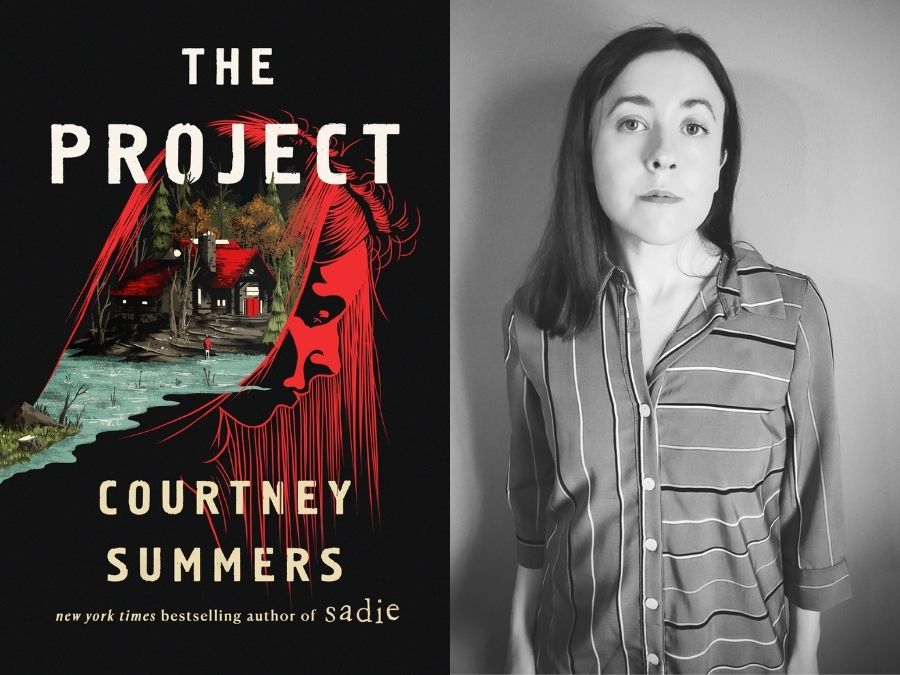Finding Your Own Bit of Magic, a guest post by Michelle A. Barry
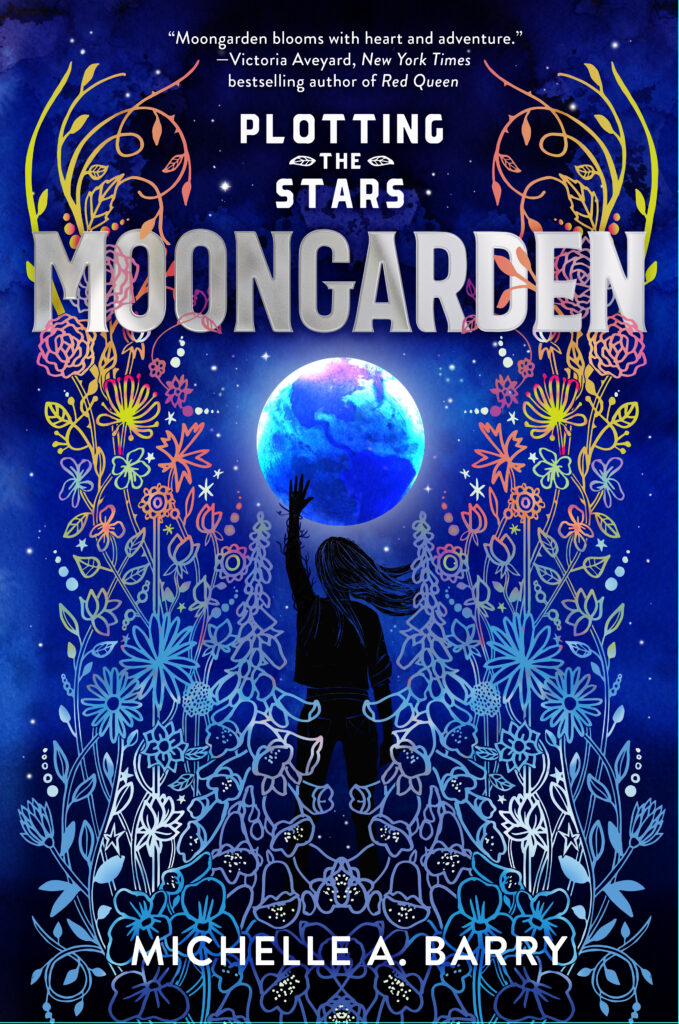
In books and television and life, popularity is a common theme, especially in the realm of kids trying to find their place in the world, or in their microcosm of the world, school. Popularity can mean different things to different people. For some, it’s being the first selected for kickball teams at recess, or for partners in class or for the school dance. For others, it’s having a lunch table of friendly faces in the cafeteria or simply a small crew of good friends.
In Moongarden, the first book in the Plotting the Stars series, Myra Hodger falls into the latter, as did I, when I was her age. Myra doesn’t want to win “Most Popular Kid on the Moon” at her Lunar boarding school. She doesn’t care where she sits on the school transport to the city of Apolloton. She doesn’t even mind when her roommates head out for the class trip without offering her even a half-hearted invite.
ADVERTISEMENT
ADVERTISEMENT
Not much, anyway.
All she wants is a close crew of friends like she had at her old school, before everyone drifted away to new interests, and new Creers (what the Lunar folks call the fields of science-fueled magic). She lost everyone except her best friend, but following a fight and subsequent friendship breakup, she lost her too.
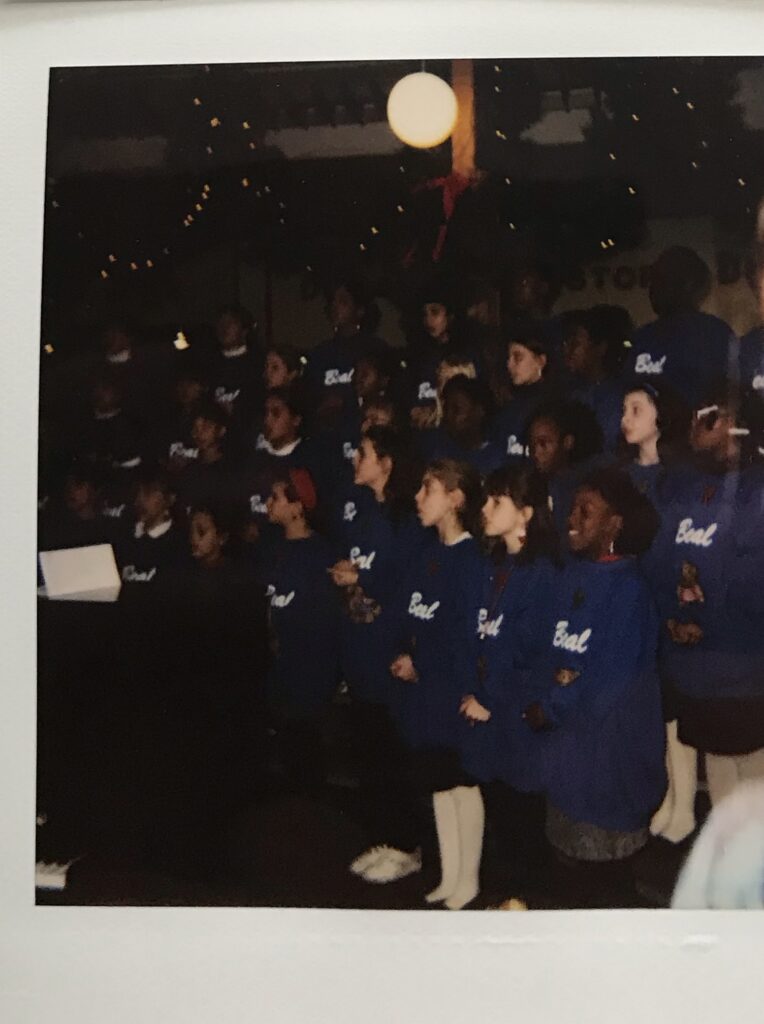
When I was a little younger than Myra, I switched to a new school in a new town where I didn’t know a single person. Meanwhile, many of the kids in my class had gone to school together since kindergarten. Friendships had been formed, solidified, and cemented long before I ever set foot inside the old, brick building. As a shy kid, I didn’t set my aims on being declared the “Most Popular Kid in Fifth Grade.” All I wanted was a place to sit comfortably at lunch, to not be picked last as a partner, or be left on the sidelines during recess. My greatest desire was a solid, small group of good friends, like I had in my old school. Probably not unlike a lot of other kids, then and now and in the future (maybe even hundreds of years into the future).
In Moongarden, the backdrop of the story is expansive. Humanity has fled the Earth (deemed the “Old World”) and established settlements on the Moon, Mars, and Venus. Those with STEM skills develop magic in their Creer. There is technology beyond what we can even dream of today, and the universe in which humanity can roam is broad and full of wonders.
However, despite all this, Myra Hodger’s story still orbits around the same struggles kids face today. Figuring out who they are and who they are becoming. Learning to navigate friendships that are growing more complicated and finding their place in the world (or galaxy).
Although I didn’t necessarily intend to do this while I was writing Moongarden, a lot of my own fears, insecurities, and hopes were absorbed into Myra’s friendship struggles. She prefers to go to the cafeteria when it is nearly empty, to avoid the anxiety of having to find a place to sit among her peers. She dreads what is said about her by the other kids in her absence, lurking outside classroom doors to eavesdrop, because the only thing worse than hearing the words is wondering what they could be.
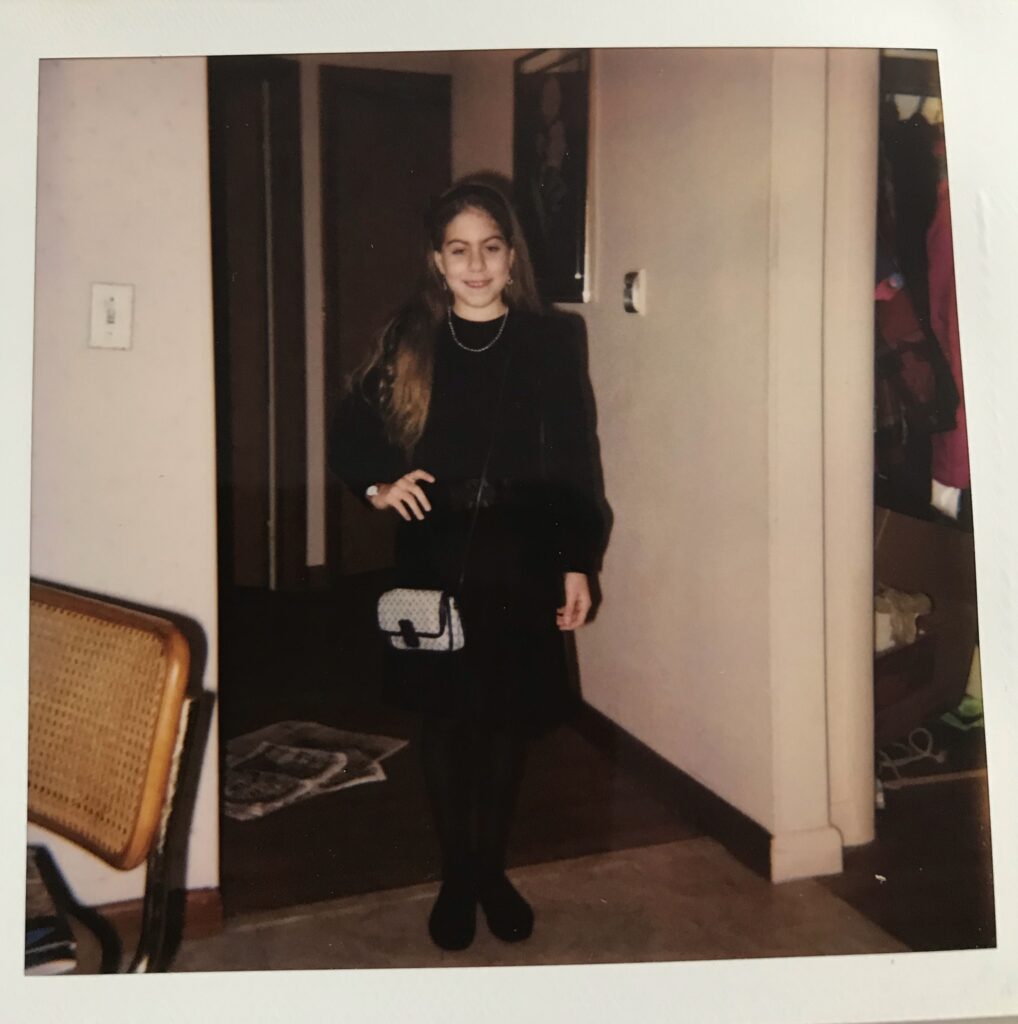
I remember being in sixth grade and overhearing some classmates whispering about how I wore my hair to school that day, and being simultaneously dejected, but also relieved, because in my mind, it could always have been worse. I used to dread missing school, and rarely did, because I was anxious about what people might say about me when I wasn’t there. My imagination could always create things more dramatic than reality, for better or worse.
Although Myra and I share many of the same insecurities and idiosyncrasies, there are key differences between us too. Myra is much better at pretending not to care than I ever was, and at times, she truly does not care, which I envy, even now. She has an inner confidence that allows her to at least portray indifference when the JV Hoverball Team demands that she move from “their” table in the cafeteria. I would have only dreamed of propping my legs up on the bench and taking a loud, slow, slurp from my drink before refusing to vacate my seat, like Myra does.
Myra exudes confidence so successfully that in the beginning, no one suspects that she doesn’t have Inscriptions for Number Whispering magic. No one would guess that deep down, Myra longs for a circle of friends. Or that she actually misses her parents nagging her nightly about her homework. Or that the girl who seems like she doesn’t care about anything, has so many cares they weigh her down like an asteroid fused to her back.
If there was a Creer for liars, Myra would have been full of Inscriptions.
Eventually, people do begin to catch on, though. A compassionate teacher puts two and two together to figure out that Myra doesn’t have a magical talent for math. A wise mentor sees through more of Myra’s layers of armor than even she knew she had assembled around herself. Kids she would have never in a million lightyears suspected of being “friend material” emerge as the two best confidants (and co-conspirators) she could have dreamed of. And a friendly robot becomes the Galaxy’s Best Sidekick a kid could ask for (though that one may not have been hard to predict).
Myra begins to discover that while she isn’t wrong that popularity does not equate value (no magic needed for that math), being honest with yourself about what you want, need, and hope for can create its own kind of enchantment in your life. Often, it will open your eyes to see who and what really matters, and what things are worth fighting for.
When Myra realizes that there is more to people than meets the eye, she finds there’s more to her than she suspects as well. Everyone has a bit of magic in them, whether it’s easy to see, or buried a little. Finding your own magic can help you recognize it in others too, and sometimes others will see it in you before you see it in yourself. Whether you live at a boarding school on the Moon, or in a rust-colored ranch in Springfield, Massachusetts, or anywhere in-between, people can surprise you. And sometimes, you can surprise yourself, too.
Meet the author
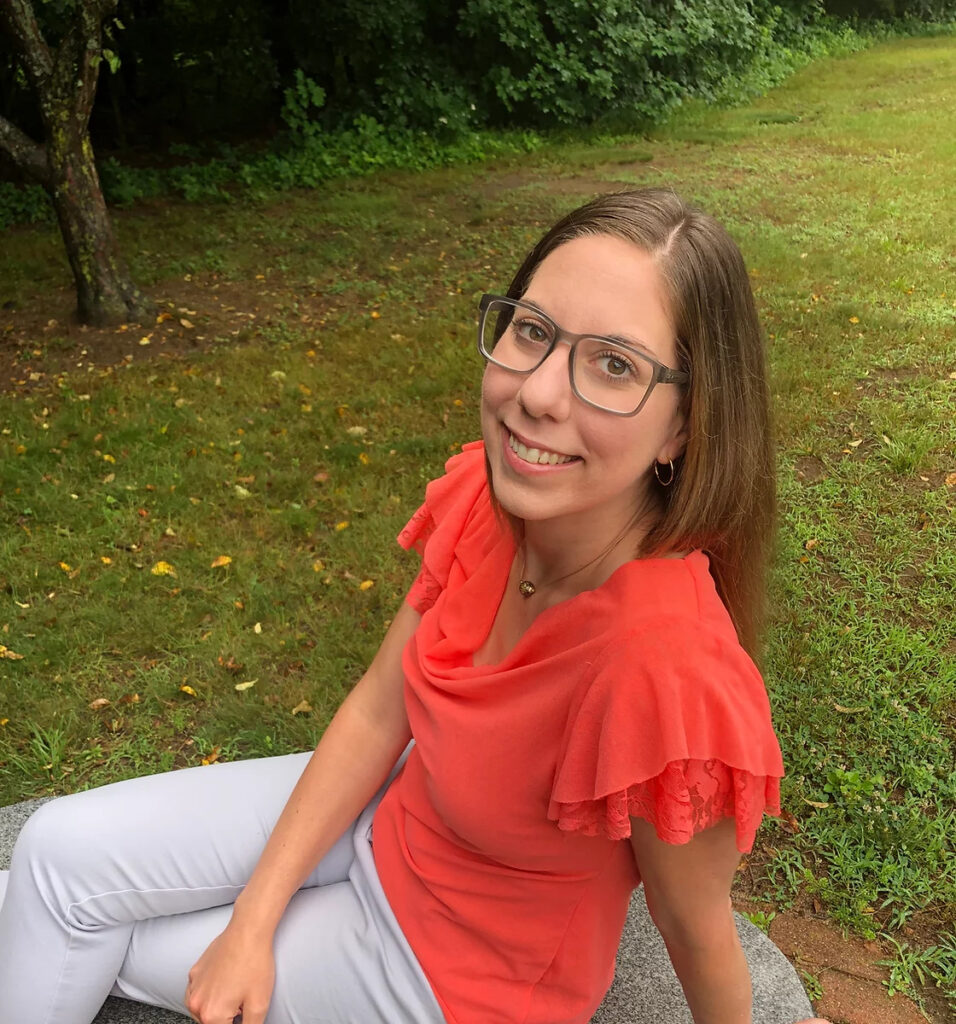
Michelle A. Barry was born and raised in Springfield, Massachusetts, though she was later cajoled over the border into Connecticut by her future husband, where she has been happily residing for many years. She holds a degree in Communications from Salve Regina University and has worked as a newspaper reporter, freelance writer and editor, and marketing professional. She currently lives in Connecticut with her charming husband and their two delightful children. Moongarden is her first novel.
https://www.michellebarrybooks.com/
https://www.instagram.com/michellebarrybooks/
https://holidayhouse.com/site/pixel-ink/?book=plotting-the-stars-1-moongarden
About Moongarden
ADVERTISEMENT
ADVERTISEMENT
“Moongarden blooms with heart and adventure. A stellar update of The Secret Garden, woven with a little science fiction, a lot of magic, a vibrant heroine, and a plucky robot sidekick to rival R2-D2.” —Victoria Aveyard, New York Times bestselling author of Red Queen
The Secret Garden meets The City of Ember as an unlikely heroine confronts loneliness and crippling parental expectations, finding her seed of courage to weed out an intergalactic government conspiracy tied to failed climate change policy in this STEM-inspired series starter.
Centuries ago, Earth’s plants turned toxic, rendering life on the planet impossible, and humanity took to space to cultivate new homes. Myra Hodger is in her first year at an elite school on the Moon to train and develop her Creer in math as a Number Whisper—like her famous Number Whisperer parents. But she’s crumbling under the pressure, she doesn’t fit in, and worst of all, the tattoos that signal her Creer growing aren’t developing. In her heart, she knows she doesn’t have a Creer, and soon, everyone else will, too.
Wandering the school while cutting class one day, she discovers a secret lab hidden behind one of the unused classrooms, and beyond that, a secret garden overflowing with plants. Dangerous toxic plants.
But as Myra learns the garden isn’t a threat, she begins to wonder if she does have a Creer—one that died out when the Earth did. If she wants to learn the truth about the garden and herself, she’ll have to hurry. There are those who’ll do anything to take these secrets to the grave.
Re-envisioning The Secret Garden for a new generation, Moongarden introduces a dynamic heroine who just might grow a revolution.
ISBN-13: 9781645951261
Publisher: Pixel + Ink
Publication date: 11/01/2022
Age Range: 10 – 12 Years
Filed under: Guest Post
About Amanda MacGregor
Amanda MacGregor works in an elementary library, loves dogs, and can be found on Twitter @CiteSomething.
ADVERTISEMENT
ADVERTISEMENT
SLJ Blog Network
One Star Review, Guess Who? (#202)
This Q&A is Going Exactly As Planned: A Talk with Tao Nyeu About Her Latest Book
More Geronimo Stilton Graphic Novels Coming from Papercutz | News
Parsing Religion in Public Schools
ADVERTISEMENT



